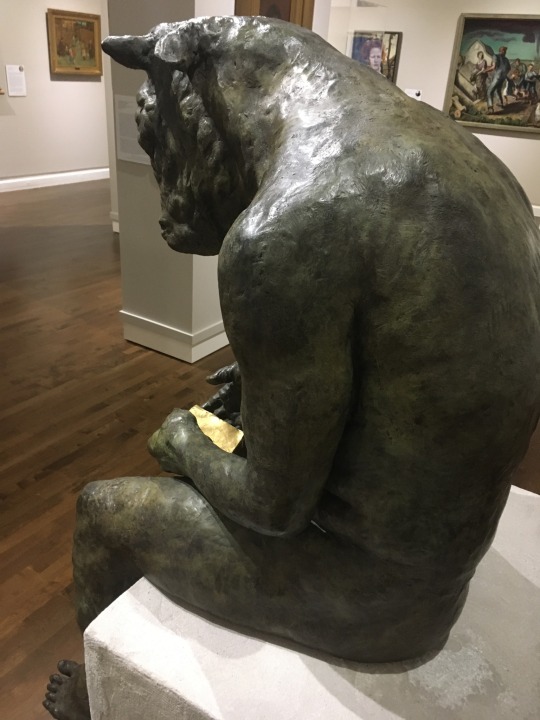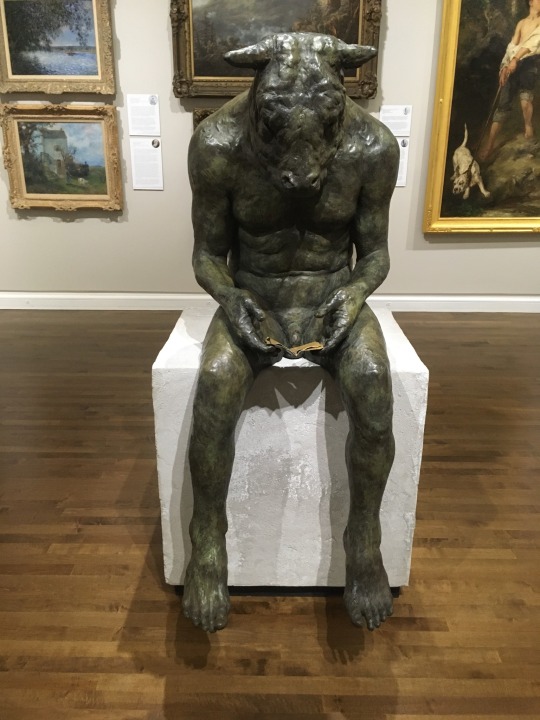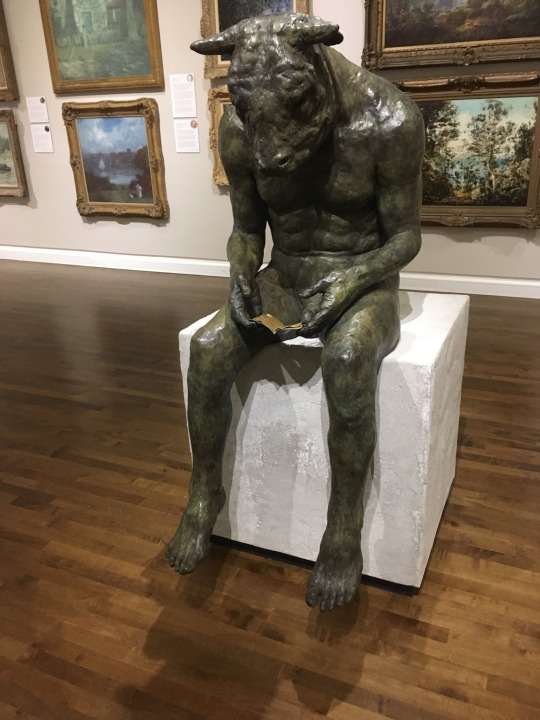Text
The flip side of the post-World War II cries of “Never again” was an unspoken “Never before.” The insistence on lifting the Holocaust out of history, the failure to recognize these patterns, and the refusal to see where the Nazis fit inside the arc of colonial genocides have all come at a high cost. The countries that defeated Hitler did not have to confront the uncomfortable fact that Hitler had taken pointers and inspiration on race-making and on human containment from them, leaving their innocence not only undisturbed but also significantly strengthened by what was indeed a righteous victory.
Naomi Klein, Doppelganger
6K notes
·
View notes
Text
almost none of the reasons why i support abortion rights have anything to do with babies. really it’s more about the fact that I think the government shouldn’t be able to force you to lend all your organs to someone else and change irreparably in the process. is a fetus a person? I don’t care! If it is a person, I don’t want anyone to be forced to host one against their will! If it isn’t a person, guess what? Nobody should be forced to host one against their will! What’s a soul? What’s a person? When does life begin? IRRELEVANT! A world in which the government can force anyone to manufacture an entirely new human body at the cost of their own is not a world I want to live in!
57K notes
·
View notes
Text
now that i am a real adult i am starting to realise. media lied to me about the availability of rooftops to go hang out on. every day i wish i could be hanging out on a rooftop somewhere looking cool as fuck
79K notes
·
View notes
Text
Apparently dating back to 2015, the almost 10 year old shitpost generator does show its age, but all the more it beautifully captures the tone and style of tumblr shitposts of the era. It's not dated, as much as it is a historical artefact.

5K notes
·
View notes
Text
101K notes
·
View notes
Text
this is girlhood. ethiopian skater girls. source
12K notes
·
View notes
Text
“If a society puts half its children into short skirts and warns them not to move in ways that reveal their panties, while putting the other half into jeans and overalls and encouraging them to climb trees, play ball, and participate in other vigorous outdoor games; if later, during adolescence, the children who have been wearing trousers are urged to “eat like growing boys,” while the children in skirts are warned to watch their weight and not get fat; if the half in jeans runs around in sneakers or boots, while the half in skirts totters about on spike heels, then these two groups of people will be biologically as well as socially different. Their muscles will be different, as will their reflexes, posture, arms, legs and feet, hand-eye coordination, and so on. Similarly, people who spend eight hours a day in an office working at a typewriter or a visual display terminal will be biologically different from those who work on construction jobs. There is no way to sort the biological and social components that produce these differences. We cannot sort nature from nurture when we confront group differences in societies in which people from different races, classes, and sexes do not have equal access to resources and power, and therefore live in different environments. Sex-typed generalizations, such as that men are heavier, taller, or stronger than women, obscure the diversity among women and among men and the extensive overlaps between them… Most women and men fall within the same range of heights, weights, and strengths, three variables that depend a great deal on how we have grown up and live. We all know that first-generation Americans, on average, are taller than their immigrant parents and that men who do physical labor, on average, are stronger than male college professors. But we forget to look for the obvious reasons for differences when confronted with assertions like ‘Men are stronger than women.’ We should be asking: ‘Which men?’ and ‘What do they do?’ There may be biologically based average differences between women and men, but these are interwoven with a host of social differences from which we cannot disentangle them.”
— Ruth Hubbard, “The Political Nature of ‘Human Nature’“
(via gothhabiba)
Yes.
94K notes
·
View notes
Text

messy sketch on the phone because it was the only thing I could draw on😞 I haven't drawn on my phone for a long time, so you can see a lot of mistakes here BUT I DON'T CARE guys I enjoyed the process.
11K notes
·
View notes
Text

Lmao how is this real, "the ambient sounds of the world were wrong, sir"
30K notes
·
View notes
Text



Recently I went to one of my favorite museums of all times, the Muskegon Art Museum, and discovered this new bronze by UK artist, Beth Carter, Minotaur Reading. When people think of the myth of the Minotaur it’s almost always in context of his violence, his lust, his impossible body. Here all that is swept away with this monstrous form reading a small golden book. This made me crazy happy to see.
64K notes
·
View notes
Text
I can’t believe “fake gamer girl” was an actual concept guys thought existed literally the most unfuckable guys who have ever lived were convinced girls were faking being interested in loser nerd hobbies to impress them
20K notes
·
View notes
Text
Blind people gesture (and why that’s kind of a big deal)
People who are blind from birth will gesture when they speak. I always like pointing out this fact when I teach classes on gesture, because it gives us an an interesting perspective on how we learn and use gestures. Until now I’ve mostly cited a 1998 paper from Jana Iverson and Susan Goldin-Meadow that analysed the gestures and speech of young blind people. Not only do blind people gesture, but the frequency and types of gestures they use does not appear to differ greatly from how sighted people gesture. If people learn gesture without ever seeing a gesture (and, most likely, never being shown), then there must be something about learning a language that means you get gestures as a bonus.
Blind people will even gesture when talking to other blind people, and sighted people will gesture when speaking on the phone - so we know that people don’t only gesture when they speak to someone who can see their gestures.
Earlier this year a new paper came out that adds to this story. Şeyda Özçalışkan, Ché Lucero and Susan Goldin-Meadow looked at the gestures of blind speakers of Turkish and English, to see if the *way* they gestured was different to sighted speakers of those languages. Some of the sighted speakers were blindfolded and others left able to see their conversation partner.
Turkish and English were chosen, because it has already been established that speakers of those languages consistently gesture differently when talking about videos of items moving. English speakers will be more likely to show the manner (e.g. ‘rolling’ or bouncing’) and trajectory (e.g. ‘left to right’, ‘downwards’) together in one gesture, and Turkish speakers will show these features as two separate gestures. This reflects the fact that English ‘roll down’ is one verbal clause, while in Turkish the equivalent would be yuvarlanarak iniyor, which translates as two verbs ‘rolling descending’.
Since we know that blind people do gesture, Özçalışkan’s team wanted to figure out if they gestured like other speakers of their language. Did the blind Turkish speakers separate the manner and trajectory of their gestures like their verbs? Did English speakers combine them? Of course, the standard methodology of showing videos wouldn’t work with blind participants, so the researchers built three dimensional models of events for people to feel before they discussed them.
The results showed that blind Turkish speakers gesture like their sighted counterparts, and the same for English speakers. All Turkish speakers gestured significantly differently from all English speakers, regardless of sightedness. This means that these particular gestural patterns are something that’s deeply linked to the grammatical properties of a language, and not something that we learn from looking at other speakers.
References
Jana M. Iverson & Susan Goldin-Meadow. 1998. Why people gesture when they speak. Nature, 396(6708), 228-228.
Şeyda Özçalışkan, Ché Lucero and Susan Goldin-Meadow. 2016. Is Seeing Gesture Necessary to Gesture Like a Native Speaker? Psychological Science 27(5) 737–747.
Asli Ozyurek & Sotaro Kita. 1999. Expressing manner and path in English and Turkish: Differences in speech, gesture, and conceptualization. In Twenty-first Annual Conference of the Cognitive Science Society (pp. 507-512). Erlbaum.
78K notes
·
View notes
Text
Thing is, I'm not just anti-fatphobia as in "I don't want people to be mean to fat people"
I am pro fat liberation as in "I want to dismantle the systemic biases against fat people and the diet culture and medical industrial complex that feeds into the very real systemic oppression that fat people face"
I don't see fatphobia as a mere interpersonal issue where if you are being nice to fat people or saying things in a polite way to them you're automatically free of fatphobia. I see it as essential to challenge every bit of diet culture myth that we might encounter and break the unscientific ideas of "health" as defines by weight, fat, calories, bmi, and other nonsense. I see it as essential to view fatphobia as the political issue it is and take it seriously as such, and to unlearn and help others unlearn oppressive baseless ideas we have assumed to be true and natural.
3K notes
·
View notes



